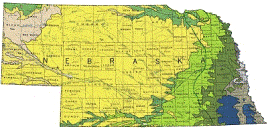United States Geological Survey

United States Geological Survey: Staff Publications
ORCID IDs
http://orcid.org/0000-0002-0007-5833
http://orcid.org/0000-0003-4504-1407
http://orcid.org/0000-0002-1280-9945
http://orcid.org/0000-0002-9164-4156
http://orcid.org/0000-0002-4707-3018
http://orcid.org/0000-0002-7120-1366
http://orcid.org/0000-0001-6700-6149
Document Type
Article
Date of this Version
7-24-2018
Citation
D’Odorico, P., Davis, K. F., Rosa, L., Carr, J. A., Chiarelli, D., Dell’Angelo, J., et al. (2018). The global food-energy-water nexus. Reviews of Geophysics, 56, 456–531. https://doi.org/10.1029/ 2017RG000591
Abstract
Abstract Water availability is a major factor constraining humanity’s ability to meet the future food and energy needs of a growing and increasingly affluent human population. Water plays an important role in the production of energy, including renewable energy sources and the extraction of unconventional fossil fuels that are expected to become important players in future energy security. The emergent competition for water between the food and energy systems is increasingly recognized in the concept of the “food-energy-water nexus.” The nexus between food and water is made even more complex by the globalization of agriculture and rapid growth in food trade, which results in a massive virtual transfer of water among regions and plays an important role in the food and water security of some regions. This review explores multiple components of the food-energy-water nexus and highlights possible approaches that could be used to meet food and energy security with the limited renewable water resources of the planet. Despite clear tensions inherent in meeting the growing and changing demand for food and energy in the 21st century, the inherent linkages among food, water, and energy systems can offer an opportunity for synergistic strategies aimed at resilient food, water, and energy security, such as the circular economy.
Included in
Geology Commons, Oceanography and Atmospheric Sciences and Meteorology Commons, Other Earth Sciences Commons, Other Environmental Sciences Commons

